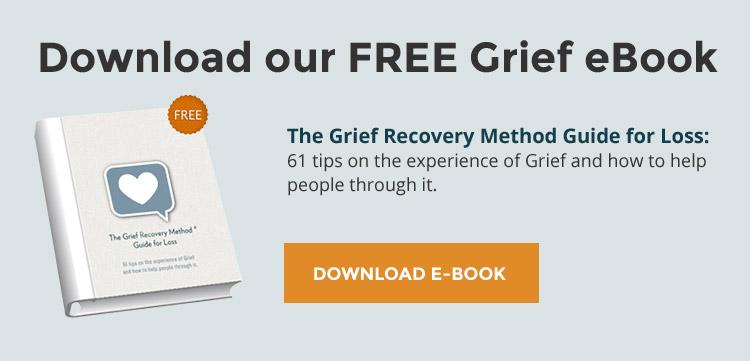
If you’re grieving the news and events surrounding Coronavirus you’re not alone.
Whether you’re upset that your vacation has been cancelled or have been quarantined (mandatory or not), make no mistake about it, people all over the world are grieving.
Most people associate grief with death and death alone. And while death is certainly a loss, there are many other life events that can produce feelings of grief related to COVID-19.
A big one is loss of safety.
It can be scary when everything we are familiar with changes.
- You might be one of the tens of millions of people around the world under quarantine, so almost all of your daily habits and routines have changed.
- Maybe you’re worried about the wellbeing of your parents, children and your own health and safety.
- If you’re older or have health problems, and are following Centers for Disease Control guidelines, you probably are staying indoors.
- You could be socially distancing yourself from friends and family so as not to expose them or yourself.
- Special vacations that you planned for have been cancelled as well as numerous concerts, business events and church.
- It can be shocking to see that things that were a given in our daily lives have shut down like schools, the NBA and even Disney World.
- Maybe you’re working from home and miss the camaraderie of your co-workers.
- Celebrities we know and love, like Tom Hanks, have tested positive for Coronavirus.
- Maybe it's causing strife in your relationship because you and your significant other don't agree on how to prepare for COVID-19.
- Have you lost faith in your government, employers and even god?
- Maybe you’re worried about friends in Italy, our first responders or our healthcare system.
- You could be worried about the future of your job, how to take care of your kids and how you’re going to pay your bills.
- There's also general sadness for our community.
Many things we accept as normal have been turned upside down. This leaves many of us, myself included, feeling like there’s an uncertain future.
How is this grief?
- Grief is the normal and natural emotional reaction to loss of any kind.
- Grief is the conflicting feelings caused by the end of or change in a familiar pattern of behavior.
- One way to describe grief is that it’s like reaching out for something that is familiar, only to find that when we need it one more time, it’s no longer there.
- When we grieve, we grieve the loss of unmet hopes, dreams and expectations.
Don't these definitions apply to at least one, if not all of the situations above?
How do you know you have unresolved grief?
- Are you eating more or not eating much at all?
- Is it hard for you to focus on simple tasks?
- Are you sleeping more or sleeping less?
- Are you irritable with your significant other?
- Does the COVID-19 pandemic remind you of other losses?
- Are you avoiding talking about Coronavirus by making jokes or changing the subject because you’re uncomfortable?
- Are you practicing Short Term Energy Relieving Behaviors (STERBs) like shopping, excessive exercise or drinking?
I used to gamble, shop and eat to avoid my feelings. Guess what? It worked! They distracted me short term, but didn’t help me long term. I was simply using the wrong tools. The Grief Recovery Method gave me effective tools that are proven to work. They can work for you too.
Can you relate?
Have you tried talking honestly about your fears only to be told that you’re living in fear. I don’t know about you, but when I see people making fun of Coronavirus online or have been told that I’m overreacting, it doesn’t make me want to be vulnerable about my feelings.
What can you do?
Find someone safe to talk to. And be safe for others to talk to.
Go first. Tell the truth about yourself, so other people feel comfortable to do the same.
Listen and talk without judgement, criticism or analysis. That goes for judging yourself too.
If you’ve participated in any of our Workshops, Grief Support Groups, or read our books then you’ve done the work and have the tools. That doesn’t mean you’ll never grief. All people do! But you know how to go first and be honest with others. If you need someone to talk to try reaching out to someone you met in your Grief Recovery Workshop.
Grab a copy of The Grief Recovery Handbook and browse our blogs for more tools and helpful information.
If you need help talking to children about Coronavirus read this: https://www.griefrecoverymethod.com/blog/2020/03/how-talk-your-kids-about-coronavirus
Please know that grief is normal and natural during these times. Even if you don’t know someone who has died from COVID-19 it’s touching many of our lives in many different ways.
Our hearts go out to everyone.
























Comments
Lois Hall, MS
thanks Allison - great - simple piece, but so true. I'm sharing with others!!!
hugs to you -
lois
Allison James Henry
Hugs to you!
Brian Magee - GR Specialist
Thanks for this - very to the point helpful. I'll be forwarding to my email newsletter list of GRM alumni.
Allison James Henry
Glad you find it useful!
Joan - TX
Spot on!! I will use the bullet points as topics to journal about.
Richard Markiewicz
Excellent information! Thanks for this.
Sarah May
Thank you for putting this together! Great information. I will definitely be sharing.
THANK YOU!
Dr. Jacquelin Maxwell
Thanks so much Allison. I will be posting this for others.
I am interested in discussing other ways I can provide support to our community during this grief stricken time.
Jacqui Maxwell
Grief Recovery Method Specialist
Add new comment